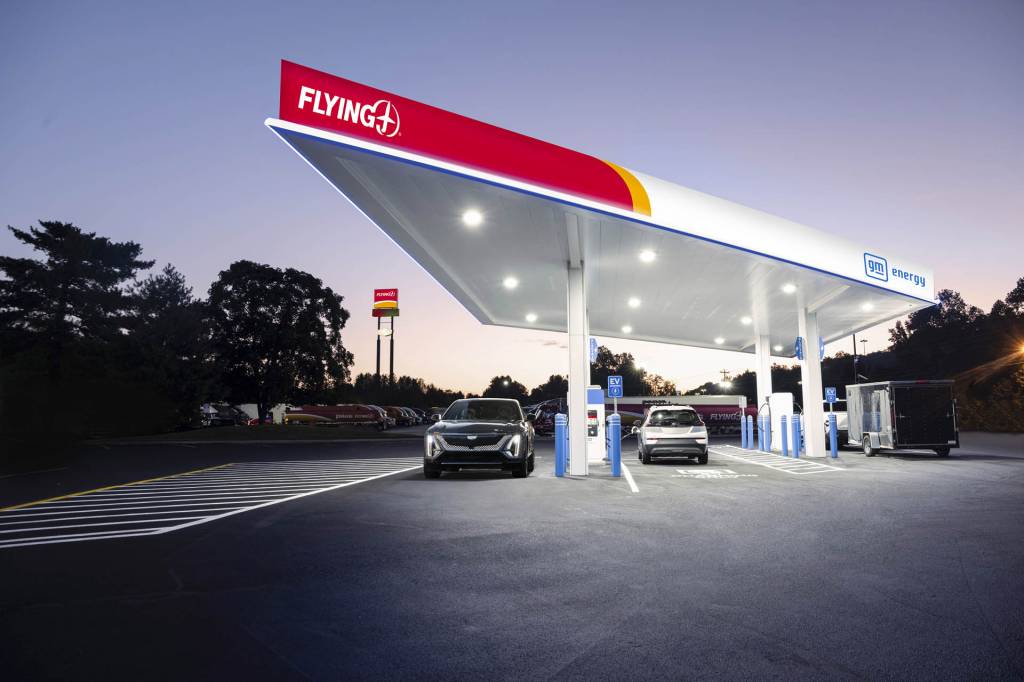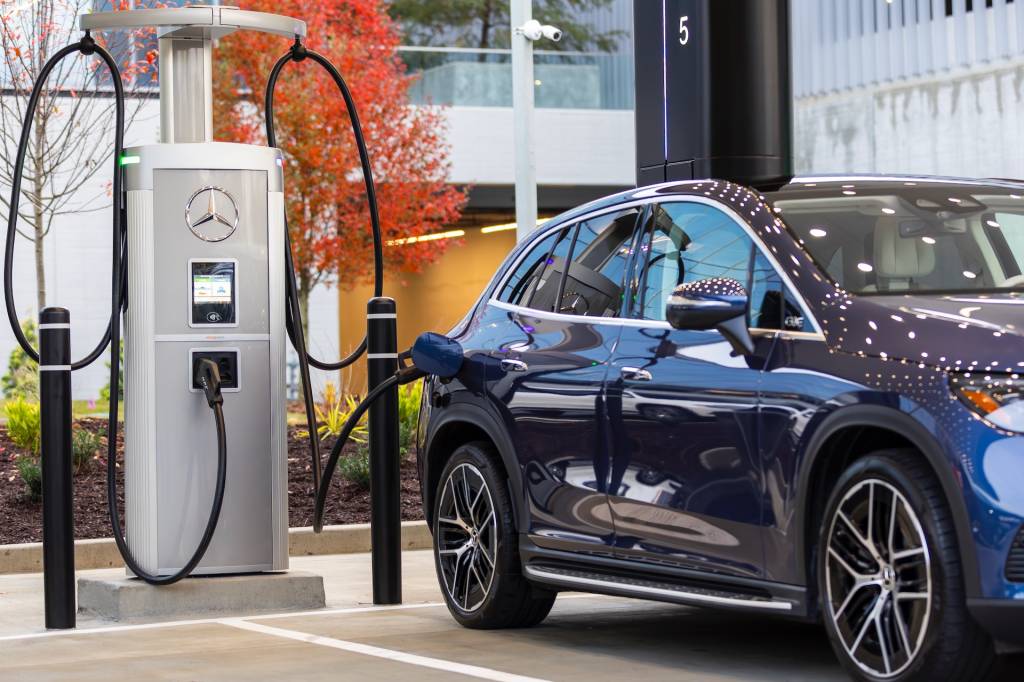According to a recent study by Here Technologies, the number of electric vehicle (EV) charging stations in the U.S. has risen by 32% since 2023, although this growth varies significantly across different states.
Here, a provider of mapping data for automakers’ navigation systems and location-based services, assessed charging infrastructure based on several criteria: the distance EV drivers need to travel to locate a charger, charging speeds, the number of EVs registered in each state, and the likelihood of finding an available charger upon arrival.

GM and Pilot Company’s EV charging network
Each state was evaluated across these four criteria, with a maximum score of 25 points allotted to each, resulting in a total score of up to 100. Delaware topped the rankings with a score of 79.4, followed closely by the District of Columbia with 72.5. Massachusetts and Nevada were tied for third at 64.2, while Connecticut scored 63.7 points.
On the other end of the spectrum, Alaska was the lowest performer with just 19.6 points. Arkansas narrowly avoided the bottom position with 33.3 points, followed by Idaho (35.3 points), Nebraska (37.3 points), and Minnesota (40.7 points).

Mercedes-Benz EV Charging Hub in Sandy Springs, Georgia
Notably, Delaware, Tennessee, Louisiana, Texas, and Indiana experienced the most significant enhancements in their charging infrastructure. Kansas, Massachusetts, Maine, and Nebraska stood out as the most reliable states overall, reporting that 98% of chargers within their jurisdictions were operational during the study period. In contrast, Alaska, D.C., and Hawaii showed higher than average rates of inoperable chargers, with more than 10% out of order at the time of the assessment.
Regional inequalities are also evident in the gradual deployment of the national EV charging network, which is funded by the Bipartisan Infrastructure Law. States are in charge of how the federal funds are utilized, and their varied pacing in executing charging infrastructure plans has hindered the overall rollout of the network.
.

